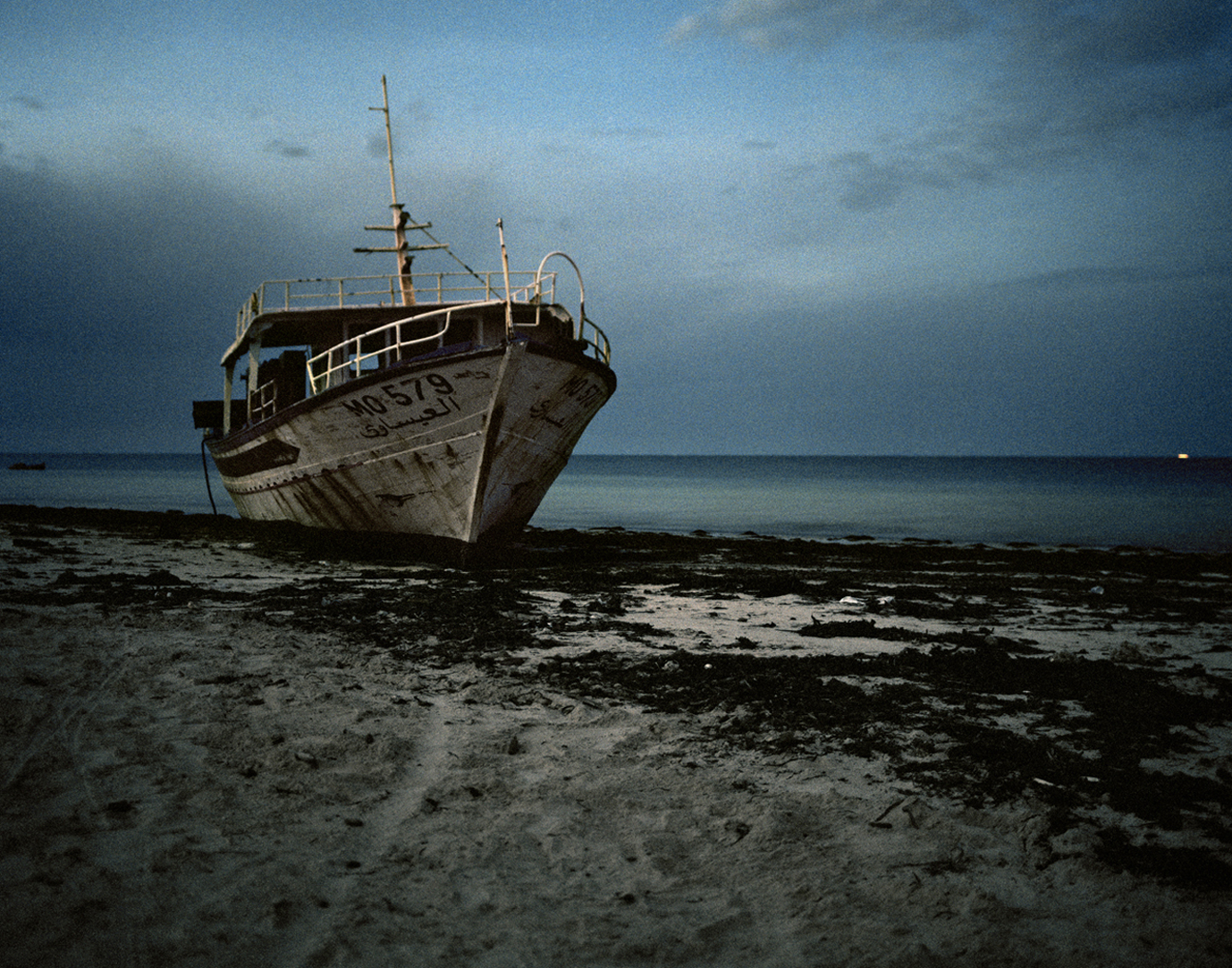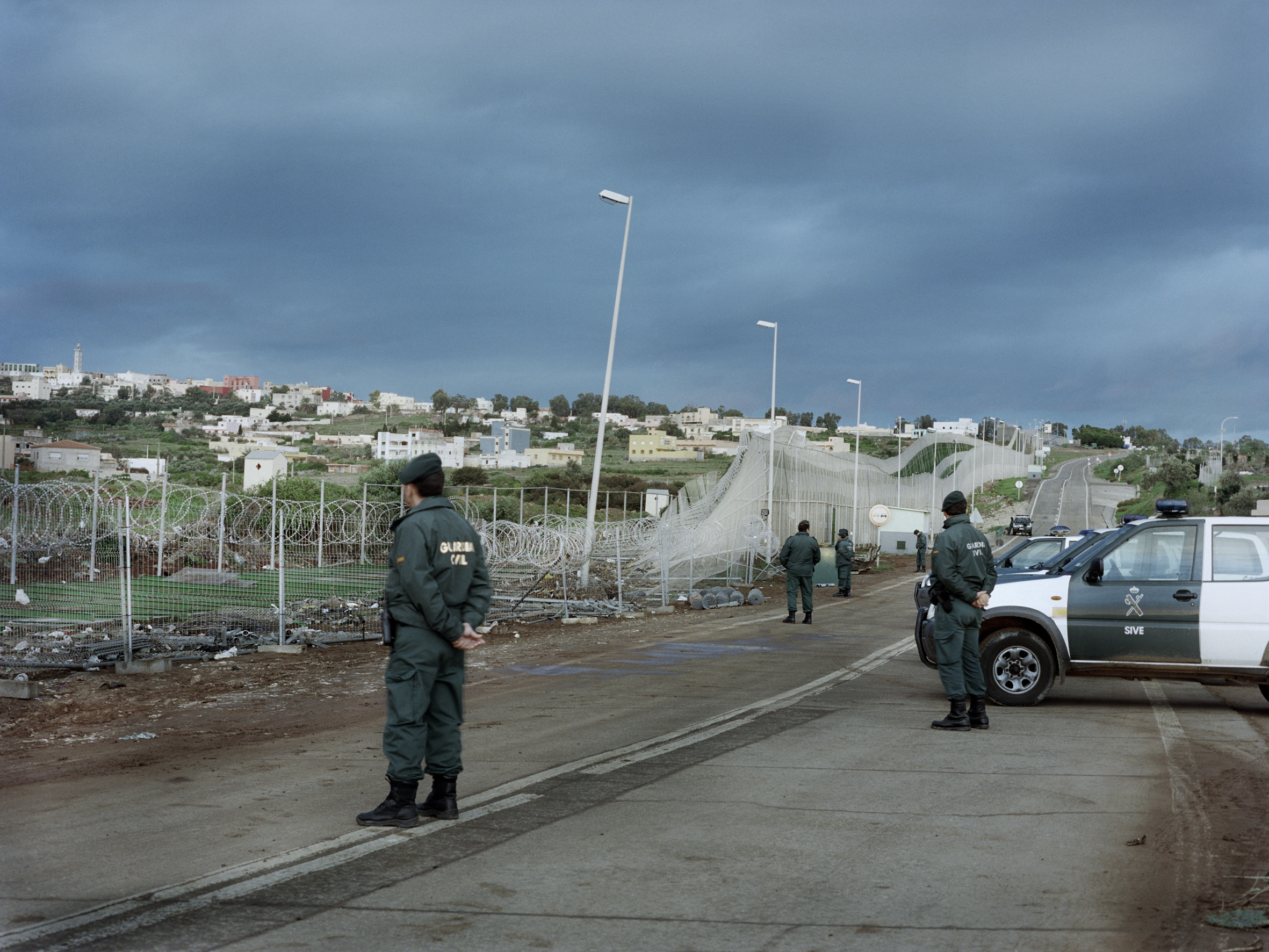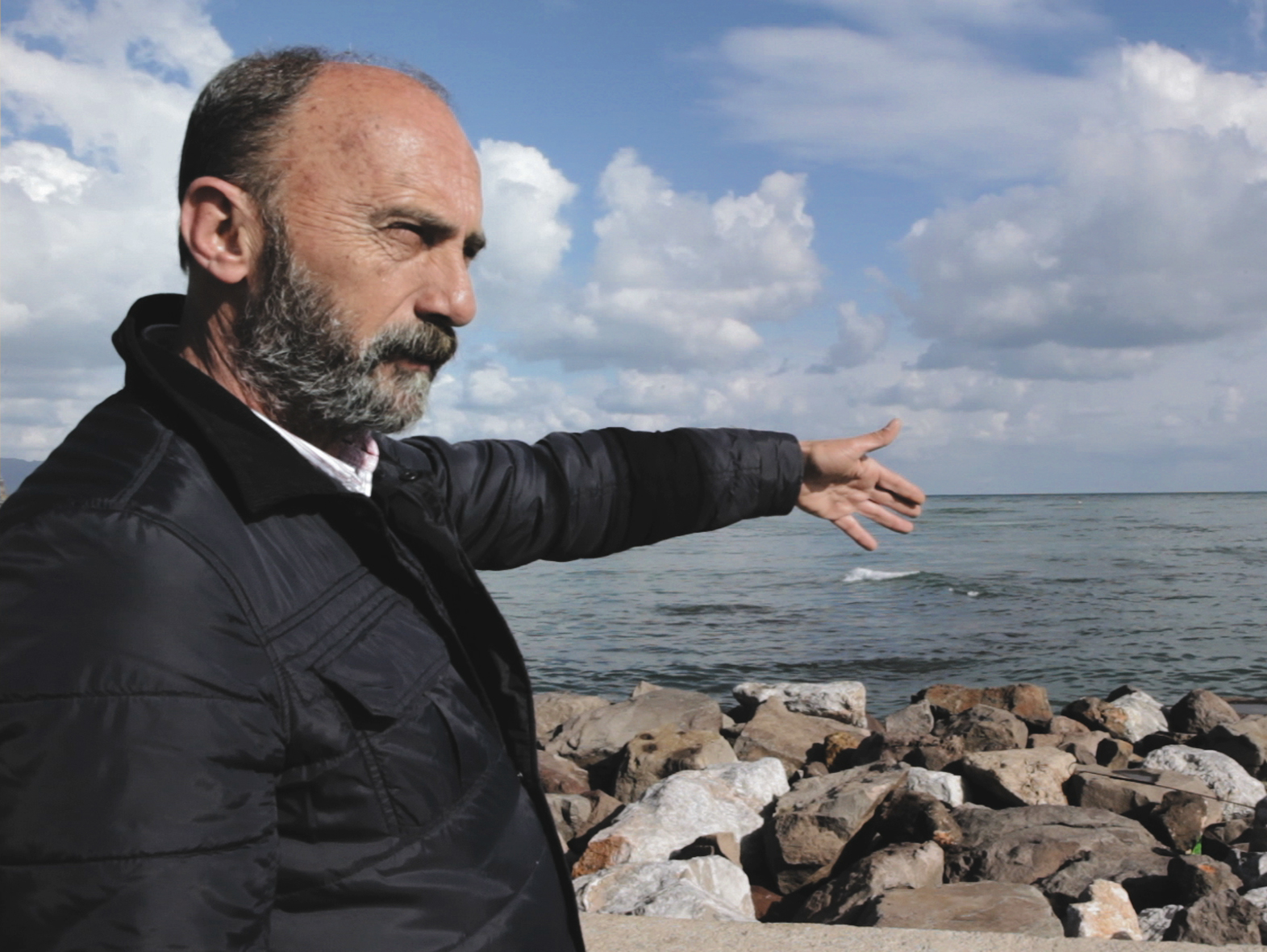
Throughout their individual careers, artists and filmmakers Hélène Crouzillat and Laetitia Tura have produced works about borders and individuals made most vulnerable by them. The two introduce their starkly poetic feature Les Messagers (2014) which presents the harrowing testimonies of migrants traveling from African into Europe. In advance of tomorrow’s program, we repost an interview of the directors conducted by Laetitia Jourdan from Prima Luce, production company and distributor of Les Messagers.
Why did you decide to make the film?
We initially decided to focus our work on the migrants who crossed Morocco toward Europe, and particularly at the Melilla border, a Spanish city, plot of land at the edge of Morocco. After hearing numerous stories from migrants about others who had died or disappeared, we began focusing our interviews around this question. We found out that, unfortunately, these disappearances and deaths were very frequent, but also due to a collective logic difficult to understand and to demonstrate.
We decided to base our film on this idea. According to our research, the root causes of this disappearance phenomenon are blurred. European policies, surveillance devices, and border walls have forced migrants onto a very dangerous path, and increased their criminality. For instance, when migrants want to cross the border, they have to change their identity, and if they die during this unfortunate travel, no one could know their real name, nor where they came from. They disappear.
Moreover, the criminalization of migration allows third-party coastguards (contract workers from Morocco, working in exchange for development aid from Europe) to commit abuses, deportation, and exactions outside of the legal framework. In short, migrants are treated like subhumans and no one who’s in charge of these abuses is brought to justice. Besides, the disappearance of the bodies hinders any precise accounting: there is no visibility. Most of the stories we collected have never been reported in the media, so we suppose that this phenomenon affects more people than officially estimated.

What are your conclusions after making the film?
The disappearance of migrants is proof of a deep dehumanization in our civilization. What we refuse them is the right of humanity — in that human society is based on the respect of its dead. By removing this human right – which distinguish us from the animals – we’re opening the door to any form of barbarity.
What do you think of the recent crisis in the Mediterranean?
The recent crisis in the Mediterranean has been made visible as “crisis” in mainstream media because of the close succession of wrecks and the number of people who are concerned. It is an “event” in our lives. However, this is nothing new. This phenomenon has been going on for many years, without anyone understanding the role that the European policies have played in it. And because there is a real eclipse on what really happens in the European border, we introduce this phenomenon as a crisis. I [Hélène Crouzillat] would assert that it is not a “crisis” but a phenomenon built over years, whose the violence will continue to increase as long as we refuse to understand what is happening and why. The more violent and coercive control and surveillance devices are, the more the ways of travel are industrialized, the more deaths and disappearances there will be.

What can be done to dignify the bodies of the migrants that drown? What can be done to identify and repatriate them?
It is essential to honour each migrant’s memory, although because of the reasons discussed earlier, we often don’t know their real identities. Families, friends, migrants themselves, need to memorialize these deaths, whatever the way to do it. Unfortunately, these acts of memory make sense only when the reasons of the death are known and understood, and it’s rarely the case here. In fact, it is rare to be able to identify and repatriate the bodies. It might be possible with many human and financial resources, but I don’t know how Europe could participate in a system like that without acknowledging its role in the deaths and disappearances itself?
What we have observed during shooting is the fact that for now, the memorial process (keeping the identity and sharing it, taking care of the bodies and burying or repatriating them) is based on individual initiatives.
Where do these bodies mostly end up?
It’s difficult to say something about it… During our work, we followed no association (for example, the Red Cross, or other international organization charged with the collection of bodies). We discovered in Zarzis, in the South of the Tunisia, two common graves in the middle of a vacant lot. Concerning these two common graves, the authorities just have moved the bodies from the coast, and buried them discreetly, aside. Clearly they didn’t have the means to identify the bodies. They acted quickly, confronted by the broad scope of the facts.
Founded in 2012, Prima Luce is a production company based in Bordeaux, France.